You possibly don’t know Charles T.Munger. In this age of showing off, through Instagram and other visuality tools, not knowing someone important is, in itself, a bit strange. He is one of the wealthiest businessmen in the world. But there are no photos of him traveling the Caribbean on the way of a private island. You would probably find him at home where he has been living for a long time and his head embedded in books.
Munger is an exceptional man known for his idiosyncratic way of life and his intense attitude toward the investing process. When Wall Street was despised by many people, it is important that Munger, who have a solid rule for investment, stood on true submission of numbers and rejecting to save his money in tax havens. For him, it is not only the right thing to do but also a favorable business.
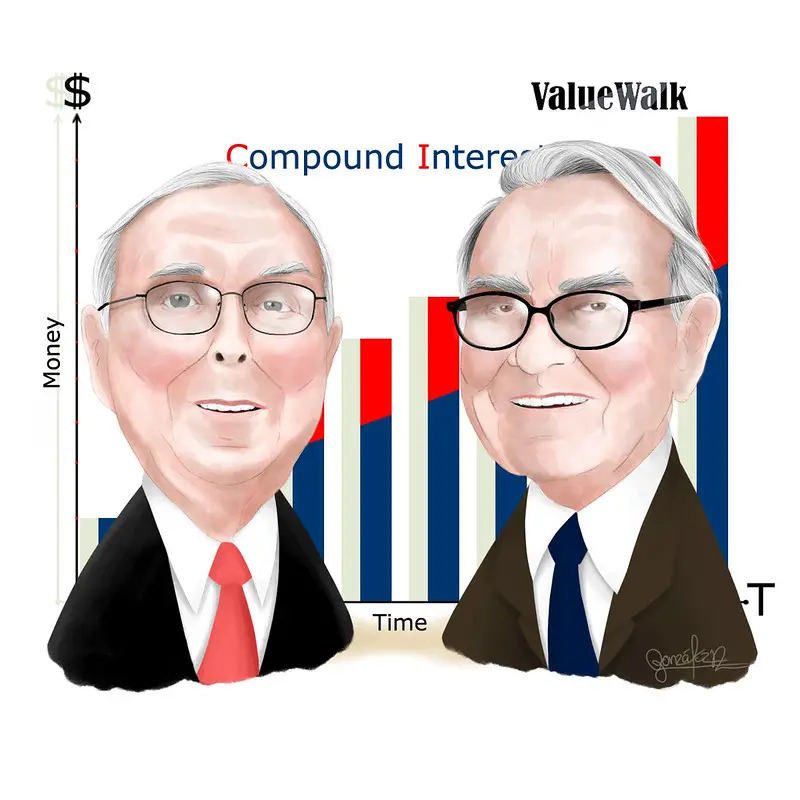
Chapter 1 – The youth of Charlie Munger gave him a powerful work ethic and humanitarian soul.
When he was a young boy, he worked at the grocery store owned by Warren Buffet’s grandfather, Ernest. This job was pretty strict for him because Munger worked non-stop 12-hour a day and deserved two-dollar with dignity. This grocery job was hard labor but the experience gave him strong work principles that would help him to climb his career ladder. With his work ethic, he turned into a billionaire investor from a modest grocery worker.
In Munger’s children’s memories, he was a father who had extremely long work hours, beginning at dawn and he always returned home on time for dinner. But he would continue working after dinner. Even if he was physically somewhere, his mind was always in the business he worked on. He was famed for his stable focus and has the unbelievable talent to ignore all disturbances- very remarkable talent if you have eight children waiting for attention!
Munger also tried hard to give his children the work discipline he had. According to William Borthwick, one of his sons, Munger taught him how to do the job right the first time-otherwise he showed how painful the results would be. Borthwick had assigned for bringing their housekeeper from the city and taking a newspaper. For this job, it was necessary to cross the river by boat and then drive a short distance by car. One day he had to cross the stormy river in harsh weather conditions. But he totally forgot to buy a newspaper because of the frightening windstorm. When his father, Munger, learned that, he forced him to go back and take the newspaper despite the storm.

His father’s action might seem cruel but it was impressive. Borthwick believes that this experience made him a better employee. Munger was an authoritarian father but his children have happy memories of their childhood with their father. He always stood behind them by helping them to build their career and take a better education.
Munger was not only generous to his entire family members but also generous to other people. Because he was a child in the time of the Great Depression, he knew the well painful experience of poverty. This period of poverty taught him to contribute to the people. Munger and his wife Nancy gave considerable financial supports to universities and hospitals. He continued his funding in emotional areas such as Parenthood Development. He thought that giving back some of the money you earn for community benefit is as important as working hard.
Chapter 2 – Munger had an uncommon educational profession that led him to the way of self-supporting and primary ideas.
Could you have imagined that someone who did not even graduate from college could be so successful? The Second World War became the biggest obstacle to Murger’s education at the University of Michigan, but he didn’t let this handicap to end his career. Rather, his unusual education made him a great businessman in the future.
In his early education, Murger was passionate about studying. His family inspired him to read and usually bought him books as presents. Munger followed the information wherever it could be found. As a youngster, he often stayed a long time in the library of a family friend who was a doctor and took advantage of the books. In the library, he was mostly concerned with medical publications, fascinating by medicine and science.
In the second stage, he preferred studying mathematics as a fresh college student. He then decided to study physics as well, and for him, it was a crucial decision for his future achievements because he learned how to solve complicated problems using logical theory.
However, there was no chance to graduate from college because of the chaotic war. During the preparation process of the Second World War, the pressure was put on young males to join the army. As soon as he completed his second year in the college, Munger entered the Army Air Corps. And then he went to the University of New Mexico to study science and engineering needed to be a pilot. After that, the government sent him to the respected California Institute of Technology for education in meteorology.

Until 1946 he served as an officer in the Army Air Corps but was then released from the military. His education was a mixture of everything. Munger was trained in many respected universities and institutes, however, he did not get any graduation degree from any of them.
In this period, Murger changed his career path for the first time by his own will. With the help of a family friend who was a dean, he was admitted to Harvard Law School. It can be understood that there is no need to have a bachelor’s degree to be successful in his education. With his academic passion and high IQ score, he was rewarded with magna cum laude, which is an academic honorific awarded to students who have achieved academic excellence.
The Second World War interruption had turned into an advantage. The war had been a reason for Munger to make different career plannings. These unusual educational decisions made him free and primary intellectual- features that were necessary for his successful life.
Chapter 3 – A casual gathering at dinner paved the way for Munger to step in an investment career.
After finishing the Harvard Law School, he began to work at a California based law firm which made him an ultra-rich person. So he established a profitable law firm Munger, Tolles, and Olson.
However, something was bothering Munger in the background. A career in law was not satisfying for him. He’s always had an eye on further. He desired more wealth, more power, and more sectors to put his abilities and intelligence in.
A casual gathering at dinner paved the way for Munger to decide a new career that achieves his tense desires. When his father died in 1959, Munger went back to Omaha intending to pick up his father’s property. A chance supper was arranged by some family friends and Warren Buffet was also among guests. Although Buffet was only 29 years old, he was an ambitious young person in the business and investment world.
The gathering was the twist of fate. Munger and Buffet continued talking without interruption. They talked about business, finance, and history for a long time without limit of topics they could discuss. In the sense of academic interest, Munger had eventually found someone in his own size. The topic of the topic!

Their discussion on that night led to the start of a half-century partnership. Buffet made Munger believe that his expertise could be more useful in the world of finance and investment. Munger gradually moved away from the law firm and left in 1965. After that, he established his own investment collaboration with a law co-worker. Even if it was a fortunate initiation, Munger realized that he was not really into running funds of investors at first hand. Instead, he would decide to make a fortune through stock possession in a holding business.
Finally, Munger became the partner of Buffet by running Berkshire Hathaway, paved the way for the striking outcomes that have made the company one of the most prestigious investing businesses in the world.
Munger promoted to his relation with Buffet, using his earlier education and experience in investment decisions. He was able to solve complicated problems by taking advantage of his education in mathematics and physics. Also, his experience as a lawyer made him respectful to the law and elaborative to manage a delicate company and keep the business clean.
Buffet supported Munger by finding intellectual difficulties and provide numerous opportunities in the business world.
Even if they turned 90 years old, their pragmatic partnership placed them at the peak of the investing business.
Chapter 4 – Charlie Munger is an honest investor dedicating his life to do highly ethical business.
Judging by movies like The Wolf of Wall Street, Wall Street is the place of thieves who try to steal people’s money.
There are, of course, many dishonorable investors and a lack of rule resulting in the development of corruption. However, we cannot completely ignore ethical businessmen. Charlie Munger directing Berkshire Hathaway is the best example of honest investors in Wall Street.
The company with 175,000 employees is quite large. It can definitely not be said that all employees keep on the right side of the law. However, such a huge company strikingly less involved in scandal and law cases. This increases customers’ and partners’ trust in the company.
Munger condemns practices such as changing books to make the business look more solid, or giving way to insider trading. The impulse for these practices can be extensive; investment executives are forced to prove to their customers that they are essential intermediaries who enrich their investments. This results in many people stretching the rules and violating the law. Since this is a very common situation, it becomes a rule of the business world: Investing directors can justify themselves by saying that others are doing the same.
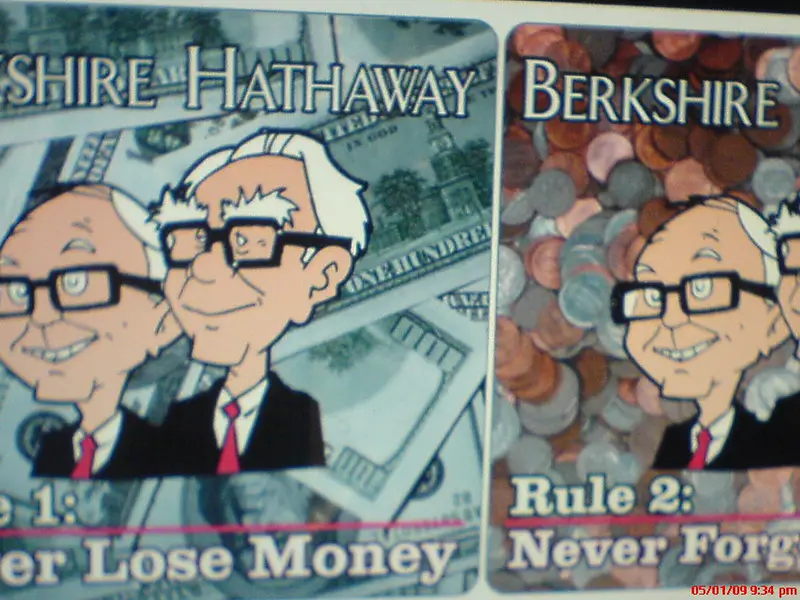
This norm is also valid for tax-evasion. In this period of international trade, it became more or less usual for the major companies such as Amazon to escape from tax payment by setting the head base of the company in offshore places like Dublin or British Virgin Isles.
Munger does not stand for the way of breaking the law accepted by everyone. He rigidly orders all Berkshire Hathaway investors and employees to ensure that they do not intend to break the law and that there is no ethical uncertainty in their businesses. The company pays all its taxes with pride. Thanks to this strategy, Berkshire Hathaway has kept its reputation while other companies such as Enron are shaken by scandals.
However, they were very close to danger. Salomon Brothers was one of the American investment banks that Berkshire Hathaway financed. Despite Buffett and Munger’s requests, Saloman preferred to do business with some dark men such as malicious fraudster Robert Maxwell. These partnerships became nearly catastrophic for Berkshire Hathaway and they strengthened Munger’s principle that you must make sure that the people you do business with have the same moral base as you.
Chapter 5 – Charlie Munger realized the 2008 Global Financial Crisis was imminent and saved Berkshire Hathaway from possible harm.
Munger’s honesty principle in the business world has drawn particular attention to the 2008 Global Financial Crisis. Before the crisis ended in collapse, he loudly condemned accountants who applied “creative accounting” to assist their customers to cover up their businesses.
Munger addresses the ethical deterioration of institutional accounting companies. In his youth, they were honest businesses, but he witnessed that they changed their moral standards in time. As Munger says, investment companies are now more interested in earning “dirty money” and abandoned their ethical standards, assisting their costumers to cover up the business and find gaps in the law.
According to Munger, accounting for derivatives is the worst immoral policies. This means finding financial contracts depending on the estimated worth of the property at hand. For instance, student loans can be given to investors based on the credit value provided after the borrower has paid. This value is not clearly determined. So the ambiguity of value puts derivatives in danger. Student loans are the most unreliable byproducts; if the students can’t deliver their debts, the agreements have no value.

Munger was cleverly conscious of the threat coming from value-based inflation only based on speculation. By clearly stating that accounting for derivatives is “disgusting”, he notified that companies using this strategy should be ready for an “important boom”
Murger’s warnings were spookily predictive. The financial crisis stuck in 2008. Housing prices collapsed and people could not pay their debts. It was proven that derivatives are actually worthless and the market has caught fire like a flash in the pan.
Of course, Berkshire Hathaway is one of the organizations that not harmed in this crisis. It was understood that staying away from the appeal of “creative accounting” was both a moral company rule and a very good business move.
Chapter 6 – Good investors benefit from their fault experiences and can easily change their minds when necessary.
Charlie Munger likes to tell the story of a financial employee, in one of his companies, who costs business hundreds of thousands of dollars by making a foolish investment mistake. When the officer noticed the mistake that he made, he went to the manager of the company to admit. The manager said it was an awful mistake and advised him to be more conscious next time. The officer continued his job because he directly reported the upper levels instead of covering up his mistake.
This story shows us Munger’s principle in ethical business. He cannot tolerate liars but has a very practical view of mistakes. He thinks that nobody is perfect. The important thing is to accept your mistakes and learn from them.
Munger applies his own words and expresses freely that he has made numerous major mistakes during his career. As an investor, “errors of omission” were some of the most severe mistakes – not knowing a worthy investment possibility or not buying enough shares.
Some examples are really remarkable. For example, Berkshire Hathaway did not take advantage of the opportunity to invest in Walmart because the stock was considered costly. However, missing this opportunity deprived the company of making billions of dollars.
In another example, Munger and Buffett almost refused to invest in high-quality candy company See’s Candy. They thought the stock price is high and they could not understand the real value of the company in the first place. But after a colleague gave a speech about the need for appreciation of the quality they invested, Berkshire Hathaway changes its mind and made a very profitable decision that yielded more than $2 billion in profits.
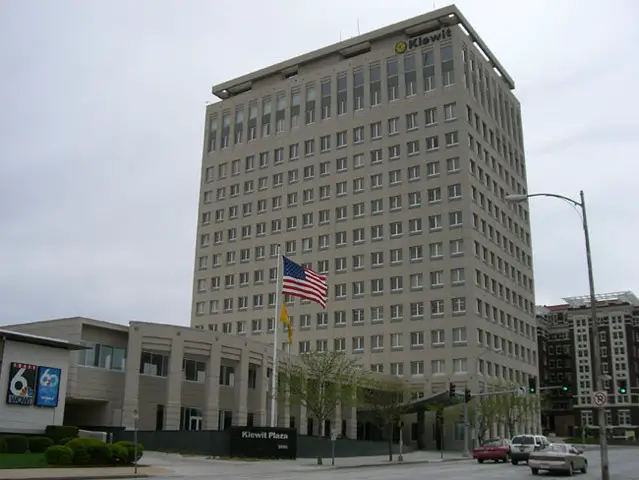
Munger is willing to change his mind in such situations and this feature makes him a strong investor. Ideas are tools for him. A more useful idea disqualifies old ideas. According to this way of thinking, when someone opposes his ideas, Munger does not perceive it personally and can continue to learn and grow.
Trying to cover up errors is a very natural human instinct. So we reject our mistake because we see it as a sign of weakness or fragility. Munger states that the opposite is true; only self-confident people can accept their mistakes and report them.
Chapter 7 – Patience and focus are the most crucial features a businessman can have.
Charlie Munger defends the situation of “sitting back for a while” and agrees with the view that a successful investor should be patient in the world of business.
Munger and Buffet patiently observe until the shares attributed as worthless turn into a lucrative company. Once the company enters the valuation curve, they take advantage of this opportunity and buy large shares from the company. After buying most of the shares in the company, they hold them for many years.
Even if the tactic of sitting back and wait patiently is not as exciting as the strategies of rival companies, it is more profitable.
For instance, after the stock market crisis in 1987, Munger and Buffet had an opportunity to buy Coca-Cola shares at an affordable price. They knew well that even if the value of the company has decreased, the Coca-Cola company, which has solid infrastructure would gain strength in time. They made Berkshire Hathaway the biggest shareholder by investing $1,3 billion in the Coca-Cola company. Their trust in the company brand and their patience were not in vain. Shares of $1,3 billion increased to $8 billion in time.

Berkshire Hathaway could secure their bets and invest in greater companies on a smaller scale. This strategy is called diversification and is applied by many stockholders. This means that even if the Coca Cola went bankrupt, they would have the investments to keep them alive in the business world. Berkshire Hathaway, however, prefers to invest in quality rather than quantity. By investing in smaller companies, they can buy more shares of the company. In this way, Berkshire Hathaway will have much more impact on these companies’ management. Also, Munger thinks that if you make clever investment decisions there is no need to have large asset collections. Ten quality companies are preferred rather than the complex companies being inadequate and irregular.
By adjusting his investment strategy to slow and patient turtle instead of a fast and excited rabbit, Munger became very successful in the investment business. It does not need to be seen magnificent from the outside because what matters the most is results.
Chapter 8 – An investor should be able to use different intellectual methods in order to survive the hardships.
Munger always tells a story about a worker who uses only a hammer. Since he uses only a hammer, he tries to solve all problems by only nailing.
It is impossible to be always successful by relying on a single tool or method as an investor. You will try to distort reality to match the solution you find. There is a need for the expertise of different departments and disciplines in order to be successful. These different approaches give you intellectual skills to overcome dilemmas by adapting the ability thinking and problem-solving.
Some of the world’s leading universities such as Harvard specialize in just one subject. Academic knowledge is surrounded by different departments that turned into a battlefield. But this harms good education.
Aircraft training can be a good example of satisfied educational models. A pilot should have the ability to think outside the box and answer questions with mental sharpness. Flying a plane requires more than people with a hammer having a single solution to all problems.
Pilots are not only trained theoretically but also forced to practice their training and show mastery of what they have learned. It is not enough to pass the exam.
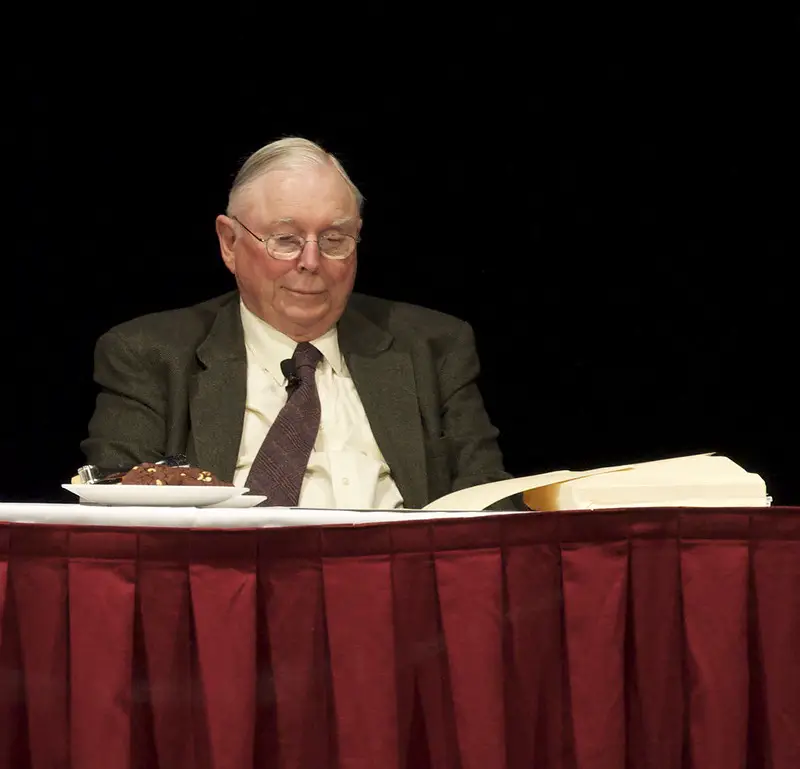
Besides, pilots should continue to learn everything about the aircraft in order to gradually update their knowledge and constantly improve their problem-solving skills by using flight simulators. So they are always mentally grown and ready to go.
Pilots make a checklist routine to create a problem in their minds and find cause and solution for these problems. They even take into account what they didn’t think at first. This strategy increases pilots’ mental power because it forces them to think of unreasonable possibilities.
If fresh investors use their education in this way, have multidisciplinary knowledge and use it in the business, gradually update their abilities, and create mental checklists, then they would succeed considering great opportunities and coping with complicated issues.
Chapter 9 – Good investors know their psychological limits and turn them into advantages.
Psychology knowledge is very important for a businessman. It is crucial to know the limits of your mind. Nobody can easily notice problems because of limited knowledge and blindspots. Unfortunately, we tend to be manipulated by our subconscious. That’s why ads are so effective- or did you think you wanted a can of cola with your free will when you woke up?
The best way to deal with our psychological limits when making investment decisions is to implement Munger’s strategy of “two-way analysis”. First, step back and rationally think of all investment-related data- what are the possible risks and benefits of the business if you invest in the company? Second and more importantly, consider the psychological factors that can affect your decision at the subconscious level and lead to inaccurate conclusions.
For instance, does the company management you intend to do business with attract you? Or on the contrary, do you feel antipathy for them that can blur your decisions and make you refuse to invest the company.
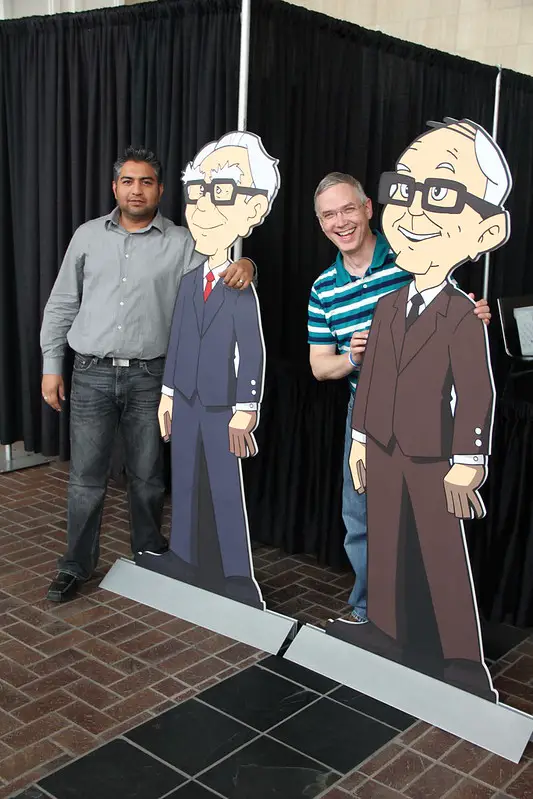
Realizing what you don’t know can be a great advantage for you as an investor because you can use this information to strengthen your weaknesses. For example, Murger and Buffet have a clearly defined ” qualification circle” that they can use to determine whether they are eligible to invest. They don’t want to invest in “high-tech industries” such as computers and internet-based types of equipment because their knowledge for this sector is not enough to invest. So they missed some very profitable investment opportunities. However, they also prevented destructive damages that may occur by making the wrong decisions in a sector in which they had little knowledge.
Of course, you can expand the qualification circle logically. You can be an expert in the field of law and have all kinds of information about it. However, if you are not a professional tennis player right now, you will not be able to gain this skill soon. Wisdom is to learn different things.
Chapter 10 – Investors should be able to see the direction of the wave.
In a competitive market, it is getting harder and harder to find a profitable investment.
Many people decide whether to make a profitable purchase with the value investment strategy led by investor Benjamin Graham. Graham calculated the value of a company to be sold in private and then divided the calculated price by the number of shares available. He saw the company as valuable if the stocks were not in the market for more than fifty of the company’s real value.
Graham’s strategy has been successfully used by many, including Berkshire Hathaway. However, companies with such low-priced shares usually fail. Charlie Munger thinks that investing in large companies that will continue to grow and evolve, rather than buying shares of companies that are about to sink, is really a more profitable policy.
So what does a good company look like, and how can possible investors identify them?
Many crucial factors should be taken into account in this regard. Company management is particularly important because a skilled manager can streamline the entire company. Let’s take Jack Welch, who has a cruel but motivated method for General Electric (GE). He ordered that any department of GE will be closed if they are out of the first or second places in any market. Although Welch’s policies led to disagreement, it was good for the development of GE as a company. Therefore, the strength of the company has attracted investors.
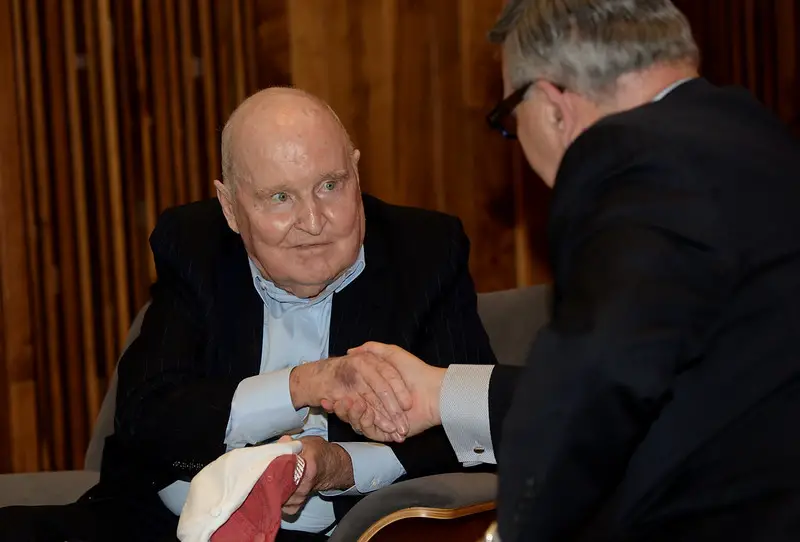
Secondly, the reputation of the company’s product on the market is equally important. Products such as Coca-Cola and Gillette shavers have unique brand recognition. Besides, their international distribution networks are strong and reliable. Gillette also has the tools to invest in the most up-to-date technological advances, meaning it can remain competitive in the market.
Skilled management and a recognized product are almost always a solid source of investment. But the most reliable way to make a fortune is to find a company ready to surf in the wave of success. Munger cites Microsoft, which was a solid-state during personal computer use growth, as an example. The company had also the skills and knowledge to take advantage of this growth. This put Microsoft in a position similar to surfers’ dream wave for investors- a great opportunity that is not always available. When you catch such a wave, jump on it without thinking!
Poor Charlie’s Almanack: The Wit and Wisdom of Charles T. Munger by Charles T. Munger, Peter E. Kaufman Book Review
Good businessmen know how to be calm and wait for the right investment opportunities to come. And then take good advantage of this opportunity. Investing in a few quality brands and products and keeping them in the long term is a better strategy than investing in hundreds of stock of different quality products. A principled investor lives on moral and ethical rules. This is not only ethically necessary but also good practice for the business world.
Take a book from the library that you would probably never read.
Charlie Munger and Warren Buffet relate their success in business to their indisputable desires to understand the knowledge and different viewpoints. You can also expand your knowledge by reading books. You can start reading a book that is written from a political point of view that you disagree on, or a book on a subject you know nothing about. By reading books, you will learn something new about everything and open your mind to the ideas of people who see the world from different perspectives.
